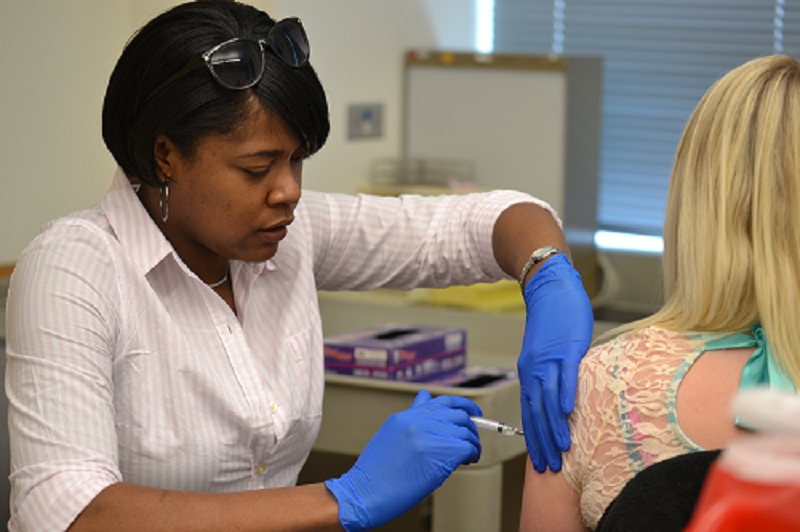Measles Vaccine
Measles is in the news from time to time. Last December I attended a health system pharmacy meeting in Anaheim, California. While there, I visited the Downtown Disney area of Disneyland. After we returned home, there were news reports about a measles outbreak which started at Disneyland. A foreign visitor brought measles into the country and it traveled from Disneyland to various locations across the country as unvaccinated people caught it and returned home. Last year was a bad year for measles, with 668 cases reported in the US.
It’s National Immunization Month, a good time to consider vaccine-preventable diseases and to learn how vaccinations work.
Measles and the measles vaccine provides an excellent example:
Measles has been around for centuries.
Up until the 1960s, virtually everyone caught measles during childhood. That’s not surprising, because measles is one of the easiest diseases to catch. Over 90% of non-immune people will catch measles if exposed. The measles virus hangs around for two hours, so you can catch measles walking through an area in which a measles patient passed through up to two hours earlier. So, places like airports, schools and Disneyland would be ideal places to expose a large number of people.
Measles is a systemic disease.
It affects the entire body, but it enters the body and is spread through the respiratory system; all you have to do is breath to catch or spread measles. About a week and a half after exposure, patients will experience symptoms that include fever, cough, runny nose and conjunctivitis. The fever can be as high as 103°F to 105°F, which is serious. After several days, patients will develop distinctive spots inside the mouth followed by rash that starts at the hairline and spreads across the entire body.
Measles can have complications.
Diarrhea, otitis media, and pneumonia are more common, with pneumonia responsible for most deaths from measles. More rarely, about 1 in 1000 patients will develop brain inflammation, which also has a significant mortality. One to two measles patients per 1000 will die from respiratory or neurological complications. About 1 in 100 patients with measles will experience residual seizures. In some countries, measles can kill up to 25% of those infected.
Those surviving measles have lifetime immunity.
The measles Vaccine is always safer than having the disease and can also provide immunity with much less risk.
The measles vaccine contains a live weakened strain of the virus. It is combined with mumps and rubella in the MMR vaccination. Two doses of the vaccine provide lifelong measles immunity for about 97% of vaccinated individuals. The first dose of measles can be administered once a child is at least 12 months old. Earlier vaccination is less effective. A second dose of the measles vaccine is administered at 4-6 years old.
Measles is bad news, and provides a good example of the numbers used to understand vaccines.
Since ~90% of people exposed to measles will catch it, public health officials target immunizations to exceed 90% of the population to prevent outbreaks; there just would not be enough susceptible people to spread the virus.
The measles vaccine carries some risk, mostly related to replication of the virus producing milder symptoms of measles. As the virus replicates, children can develop a rash or experience a fever occurring 5-12 days after vaccination and lasting a few days. The most common adverse effect is pain at the site of injection of the measles vaccine. Joint pain is common among adult women receiving the MMR vaccine.
The measles vaccination was once at the center of controversy.
In 1998, a publication in a prominent medical journal suggested that the measles vaccine was responsible for the increased rate of autism. It was eventually found that the data was made-up, and the paper was retracted. There is NO credible evidence connecting the measles vaccine and autism.
The goal of vaccination programs is to wipe out the disease. The US was declared free of measles 15 years ago, but the disease continues to occur whenever visitors from other countries bring measles into the US. The Disneyland outbreak was thought to be due to a visitor from the Philippines. Vaccination protects individuals in such outbreaks and also prevents an outbreak from growing into an epidemic.












